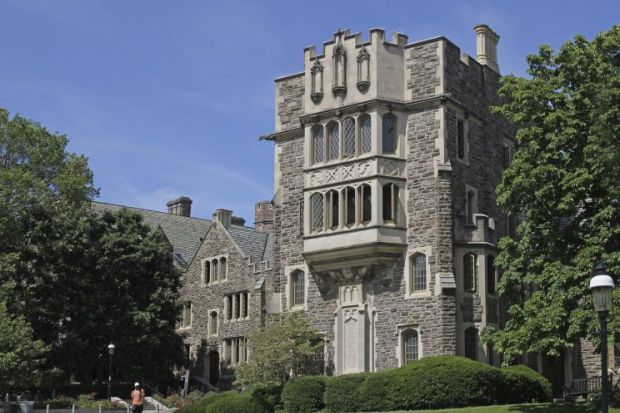Princeton University has fired a tenured professor of the Classics who gained wide attention for criticising fellow faculty demanding progress on racial equality, citing issues of sexual misconduct.
The professor, Joshua Katz, was dismissed by the university’s governing board on grounds related to a consensual sexual relationship with an undergraduate student in the early 2000s.
The university already had adjudicated and sanctioned Professor Katz for the matter in 2018, but it revisited the issue last year after the professor publicly challenged a demand by hundreds of his Princeton colleagues for far more substantial institutional anti-racist initiatives.
That subsequent investigation showed that Professor Katz had “misrepresented facts or failed to be straightforward during the 2018 proceeding”, and had hindered the student – who subsequently graduated – from participating in the process and obtaining mental healthcare, the university said.
“These actions were not only egregious violations of university policy, but also entirely inconsistent with his obligations as a member of the faculty,” the university said in a statement.
Professor Katz has taken an increasingly prominent role in the subset of US faculty who contend that the nation’s higher education system has grown intolerant of conservative voices, and he and his allies immediately began portraying his firing as fitting with that narrative.
Responding to his dismissal in a Wall Street Journal column, Professor Katz calls himself a victim of “cancellation” – the term widely embraced by political conservatives facing societal rejection by those who challenge their beliefs and actions.
It defies belief, he writes, to suggest that Princeton was firing him over meaningful new discoveries in the 2018 case. Instead, he says, the university in the aftermath of the George Floyd killing was very clearly punishing him for expressing “certain opinions about the state of America that would have been considered normal only a few months earlier”.
Fellow conservatives expressed outrage. “For anyone who’s been paying attention,” writes one columnist in the magazine National Review, “it’s pretty obvious that the real reason for Katz’s termination was political.”
The demand by Princeton faculty, published in July 2020 and signed by hundreds, said that anti-black racism was “rampant in even our most ‘progressive’ communities”, and “plays a powerful role at institutions like Princeton, despite declared values of diversity and inclusion”.
The faculty listed dozens of demands for change across campus in areas that include funding, scholarships, salaries, admissions, mentoring, training, prioritisations, investigations, disciplinary actions and public acknowledgments.
In a published response at the time, Professor Katz said he was “embarrassed for” those who had signed the letter, suggesting that many had joined it out of ignorance or fear of peer pressure. The faculty recommendations, if implemented, “would lead to civil war on campus and erode even further public confidence in how elite institutions of higher education operate”, he wrote.
Professor Katz later joined as an adviser the University of Austin, a new private liberal arts institution created by wealthy conservative donors.
Princeton’s president, Christopher Eisgruber, speaking with an alumni group just ahead of the trustees’ vote to dismiss Professor Katz, said he could not speak in detail about personnel matters but made clear that he supported the firing.
The university was absolutely committed to free speech, Professor Eisgruber said, but was also fully committed to rules that protect students from faculty misconduct. “It’s almost always the case,” he said, “where a serious penalty is applied that somebody is going to complain, in one way or another, that there was bias in the process.”
The president also made a point of promising that Princeton was not among universities that “have been willing to accept gag orders in exchange for a solution where somebody quietly walks away”, and he suggested that there might be “opportunities in the future” where he could address what took place more fully.




